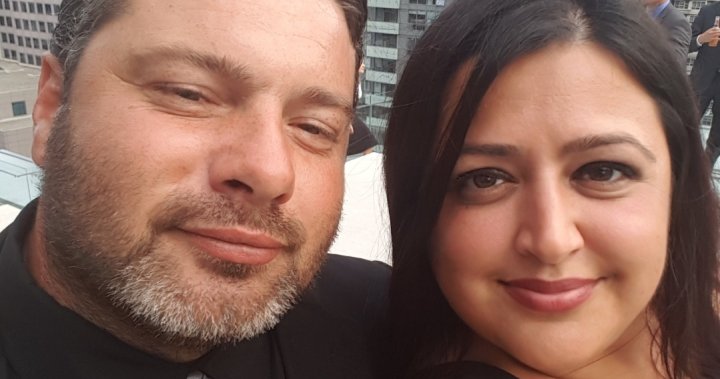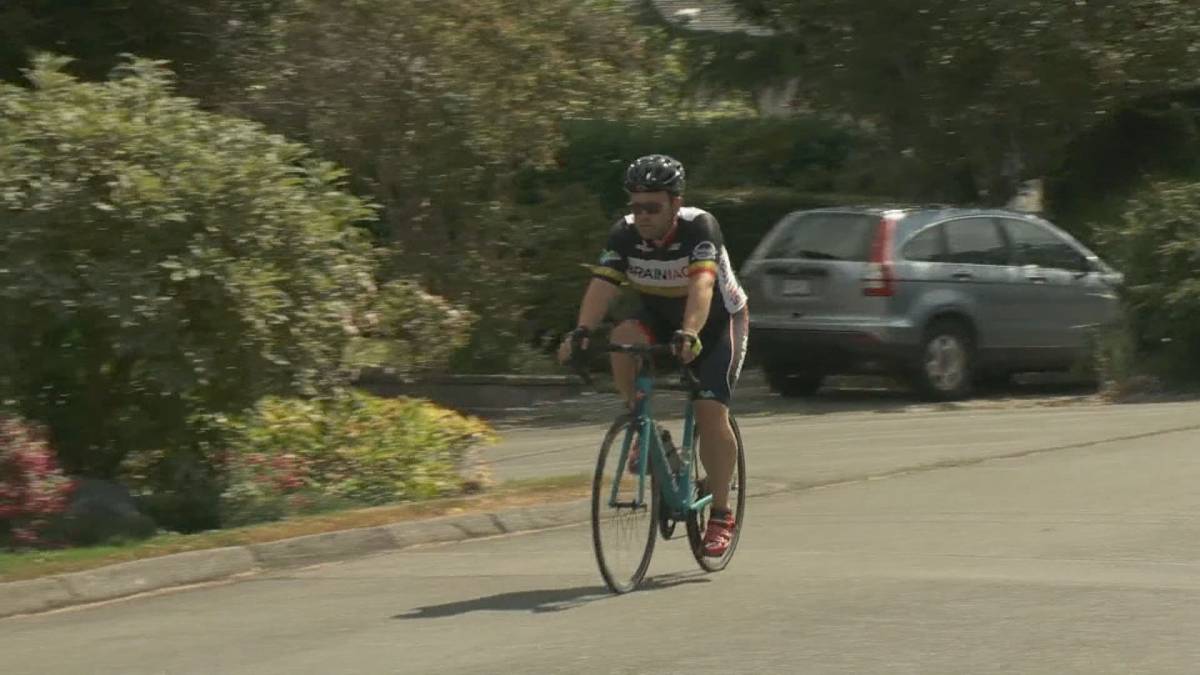When Jessica Soares of Beeton, Ontario, lost her beloved husband, Paulo, affectionately known as “Paul,” he was only 39 years old.
“His struggle lasted 31 months, and that included two craniotomies, 53 rounds of radiation and 18 months of chemotherapy,” she said.
The long and difficult journey began on a typical Sunday afternoon.
“It was sudden. There was no prior warning. We were home… He looked at me. He wasn’t able to communicate and I saw him start to drift to the side and I just picked him up and put him on the couch and then we had to do an emergency run to the Royal Victoria Hospital in Barrie.” Soares recalled.
Continue reading:
Alberta is lowering the age for women to be screened for breast cancer
Continue reading
-

Alberta is lowering the age for women to be screened for breast cancer
She was shocked to learn that there was a “nine centimeter mass on his left frontal lobe” and it was determined that Paul had brain cancer.
That would be the first of several shocks.
“He didn’t work because he was recovering. I was with him, self employed, no benefits. And we found that his chemotherapy wasn’t covered,” she said.
As his caregiver, Soares shared little with him about her struggle to gain access to critical life-prolonging treatment for Paul. She wanted him to focus on getting well while she asked his insurance company to cover the cost of the drug.
Continue reading:
Kelowna, BC Woman taking family trip for cancer research as part of the Tour de Cure
“At one point I even listed our house to cover treatment for him…at that moment I would have done anything to prolong his life…We had our whole lives ahead of us, so the house meant nothing to me. He meant everything,” she said.
While Soares managed to gain access to health insurance “through a special benefit” for Paul, she was stunned to learn that chemotherapy was not widely available through provincial health insurance.
“His first 30 days of treatment would have cost $20,000. And after that it would have been between $2,500 and $3,000 for maintenance chemo each month, which is only five days in a 28-day cycle,” she explained.

“The outlook for glioblastoma is 15 to 18 months… and we want patients to be able to live that time in relative quality of life, and they can’t if they don’t get treatment,” said Marc Peeters, director of Brain Cancer Canada.
Peeters and Soares, who are now ambassadors for the national charity, are calling for an equitable approach to brain cancer treatment in Canada.
Continue reading:
Stem cell drive launches for cancer patients in London on Thursday afternoon
“Chemotherapy is currently not equally accessible to patients across Canada. It depends on where you are, what province, whether you have access or not, whether you have coverage,” Peeters said.
Brain Cancer Canada conducted a survey and found that the drug temozolomide is not widely covered by the provincial system “in Ontario and Nova Scotia and Newfoundland and Labrador and Prince Edward Island.”
“So that means that patients in these provinces have to rely on whether they have private insurance; You may or may not have full coverage from private insurance. If they don’t have access to private insurance, if they don’t have insurance there, they rely on grants from some pharmaceutical programs that they may subsidize,” Peeters added.
Not accessing the drug at all means wasting precious time, while paying out of pocket would spell financial ruin for some Canadians.
Continue reading:
400,000 fewer mammograms during the pandemic, now visible advanced cancer: OMA
“The treatment is so expensive. We’re talking about tens of thousands of dollars, and that’s impossible for most people to pay out of their own pocket and deal with without consequences,” he said.
Since her husband’s death, Soares has been committed to opening the dialogue about the need for provincial funding for oral chemotherapy to treat brain cancer.
“It started with honoring his memory of always wanting to leave everything better than when he found it. And through that and through the cycle of grief, I’ve found purpose and direction,” Soares said, adding, “I want to change that for someone else. I can’t change what happened to us. But if I can make it a little easier for someone else, I will.”
© 2022 Global News, a division of Corus Entertainment Inc.
#Brain #cancer #widow #calls #equitable #access #chemotherapy #Canada #Globalnews.ca





Leave a Comment